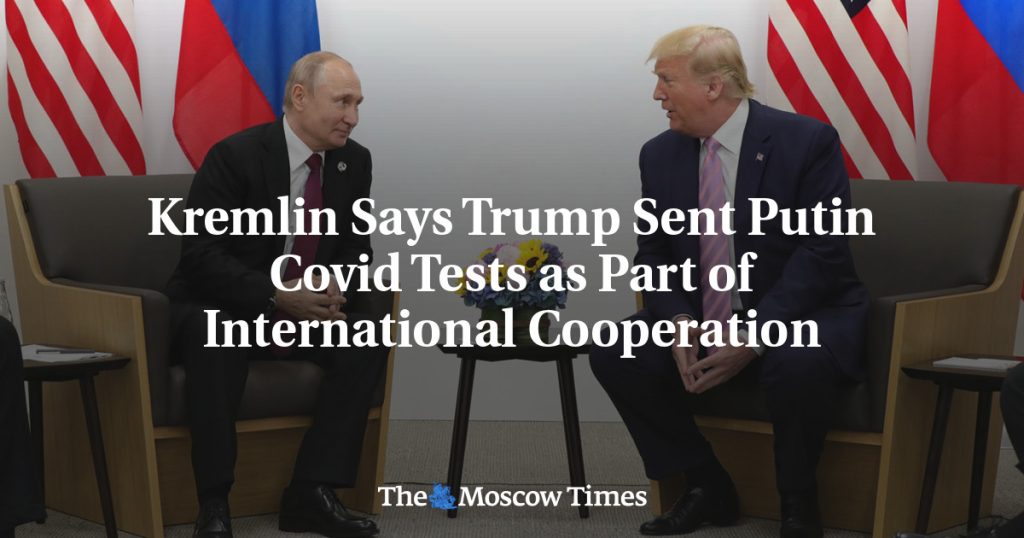The Kremlin confirmed that then-U.S. President Donald Trump had sent Russian President Vladimir Putin Covid tests at the start of the pandemic but clarified that it was part of an international exchange effort. This exchange occurred as countries around the world were facing shortages of necessary medical equipment, and the U.S. sent tests to Russia while receiving ventilator units from them. The Kremlin spokesman Dmitry Peskov mentioned that the initial tests were not very effective due to the equipment shortage at the time. The aim of this exchange was to help each other combat the pandemic by sharing resources.
Amid the raging coronavirus pandemic in 2020, Trump reportedly sent a batch of Covid tests to Putin, who accepted the supplies but requested that the dispatch be kept secret to avoid political backlash for Trump. According to journalist Bob Woodward’s book “War,” Putin advised Trump not to disclose the medical equipment transfer, as he believed it could lead to negative reactions towards Trump. The book also mentioned an unnamed Trump aide suggesting that Trump and Putin had multiple conversations after 2021, despite the U.S. supporting Ukraine against Russia’s aggression. However, the Kremlin spokesman refuted these claims, stating that no such conversations had taken place between the two leaders.
The exchange of Covid tests between Trump and Putin sheds light on the cooperative efforts that took place during the early stages of the pandemic when countries were struggling to secure necessary medical supplies. Despite political tensions between the U.S. and Russia, the act of sharing resources for the greater good of public health demonstrates a level of international cooperation in times of crisis. The importance of solidarity and support among nations in combating a global health crisis like Covid-19 is evident in this exchange between the U.S. and Russia.
The revelation of Trump sending Covid tests to Putin adds a layer of complexity to the relationship between the two leaders, especially considering the political climate and tensions between their respective countries during that time. The decision to keep the exchange confidential, as advised by Putin, highlights the delicate balance of politics and public perception in international relations. It also raises questions about the extent of communication and cooperation between U.S. and Russian leaders during crucial moments, such as a global health emergency like the pandemic.
The denial by the Kremlin regarding Trump and Putin speaking multiple times since 2021 emphasizes the cautious and strategic approach taken by both governments in managing their public image and diplomatic relations. Despite the challenges and conflicts that exist between the U.S. and Russia, there are instances where cooperation and mutual assistance have taken place, as seen in the exchange of medical supplies. The dynamics of international politics and diplomacy are multifaceted, with actions and decisions often influenced by various factors such as public opinion, national interests, and global emergencies like the Covid-19 pandemic.
In the face of ongoing challenges and threats to independent journalism, media outlets like The Moscow Times continue to provide accurate and unbiased reporting on important issues, including those involving government actions and international relations. The efforts to silence independent journalism in Russia underscore the crucial role that free and open media play in providing transparency and accountability in society. By supporting organizations like The Moscow Times, individuals can contribute to the protection of press freedom and the promotion of objective reporting in the midst of censorship and repression.


